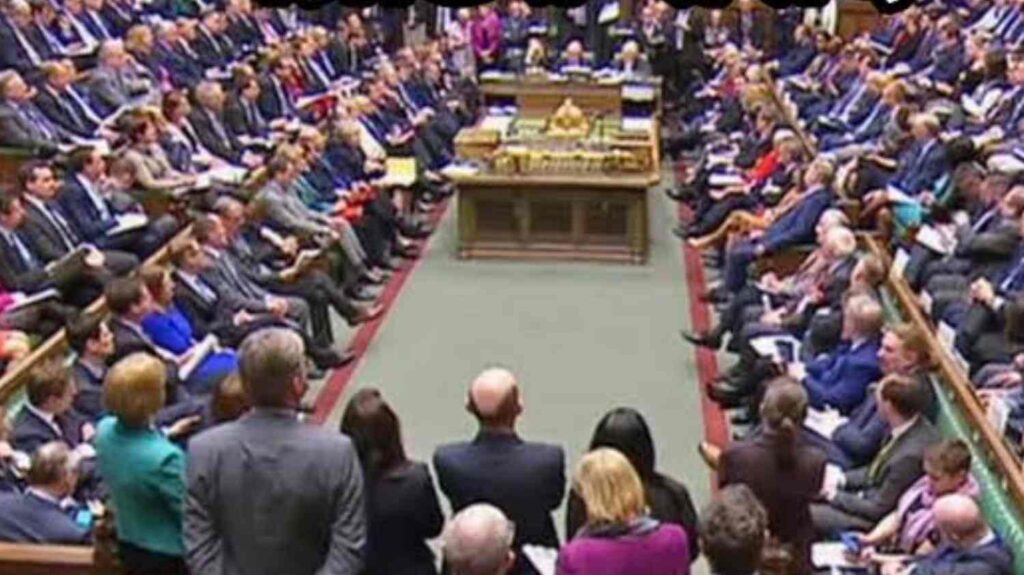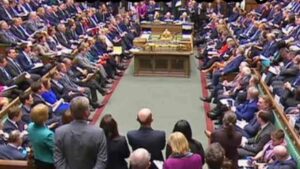London: The UK Parliament has rejected a Conservative amendment calling for a new national inquiry into grooming gangs. The amendment was part of the Children’s Wellbeing and Schools Bill, which aims to improve children’s care systems and education standards. The proposal was voted down by 364 votes to 111, with a significant majority of 253 opposing it.
The issue has sparked significant political, public, and even international debate, highlighting the intersection of justice for victims, political strategy, and institutional accountability.
What Are Grooming Gangs?
Grooming gangs have been a complex and sensitive issue in the UK, involving the sexual exploitation of children and young people by organized groups. Victims are often groomed through manipulation and trust-building before being subjected to abuse.
High-profile cases in cities like Rotherham, Rochdale, and Oxford have revealed widespread abuse, with hundreds of children affected. These cases have also raised serious questions about the role of police, social services, and government institutions in preventing such crimes.
The Objective and Controversy Behind the Amendment
The amendment aimed to launch a new national inquiry into grooming gangs to investigate potential institutional failures and ensure accountability.
However, the Labour Party rejected the proposal, arguing that:
The Independent Inquiry into Child Sexual Abuse (IICSA) has already conducted extensive investigations.
IICSA’s work spanned seven years and concluded in 2022, addressing broader issues of child sexual abuse.
Rather than initiating a new inquiry, Labour emphasized the importance of implementing IICSA’s recommendations.
Political Debate: Justice or Strategy?
The issue exposed sharp political divides in Parliament.
The Conservative Position:
Conservative MPs accused Labour of neglecting justice by rejecting the inquiry.
MP Kemi Badenoch and others argued that IICSA failed to address the cultural and racial dimensions of grooming gangs.
They stressed that a new inquiry is essential to fully investigate the crimes and hold institutions accountable.
Labour’s Argument:
Labour dismissed the amendment as a “political stunt.”
They argued that passing the amendment would have jeopardized the entire Children’s Wellbeing and Schools Bill, which focuses on improving child care and education.
Labour maintained that immediate action on existing recommendations is more important than a lengthy new inquiry.
The Voice of Victims and the Public
Victims’ Perspective:
The debate also centered on the needs of victims:
Some victims’ groups emphasized the urgency of implementing existing recommendations rather than starting another inquiry.
Others, including survivors, advocated for a new investigation, arguing that previous inquiries did not sufficiently address institutional failings.
Public Sentiment:
Public opinion on the issue is divided. While some see a new inquiry as necessary for justice, others believe it would be a waste of time and resources, considering the findings of prior investigations.
Elon Musk’s Influence
The debate took an international turn with the involvement of Elon Musk. Using his platform X, Musk urged MPs to support the inquiry, framing the issue as a matter of justice and human rights. His advocacy brought global attention to this domestic political issue.
Future Possibilities
Despite rejecting the amendment, the Labour government has indicated that it remains “open-minded” and willing to revisit the issue if victims’ groups demand a targeted inquiry.
Conclusion
The grooming gangs issue remains a deeply sensitive and contentious subject in the UK, raising questions of justice, accountability, and political strategy.
This debate has highlighted the following key points:
1. Immediate action to implement IICSA’s recommendations is crucial.
2. Victims’ calls for justice should not be sidelined for political purposes.
3. Any new inquiry, if deemed necessary, must be conducted with sincerity and seriousness.
It will be crucial to see how the government and Parliament address this issue in the coming months.












More Stories
JASPER का #แรงอีกนิดPressTour: सपनों, मेहनत और प्रशंसा का अनूठा संगम
OpenAI के GPT-4 मॉडल पर आधारित X का “Grok” फीचर: किस तरह काम करता है
Pi Coin ( crypto currency) आखिर क्या हो सकता है इसका भविष्य, Pi Network कैसे करें माइन